![]() — หน้าแรก — เกาะติดข่าว
— หน้าแรก — เกาะติดข่าว
ข่าวเศรษฐกิจและธุรกิจประจำสัปดาห์
-
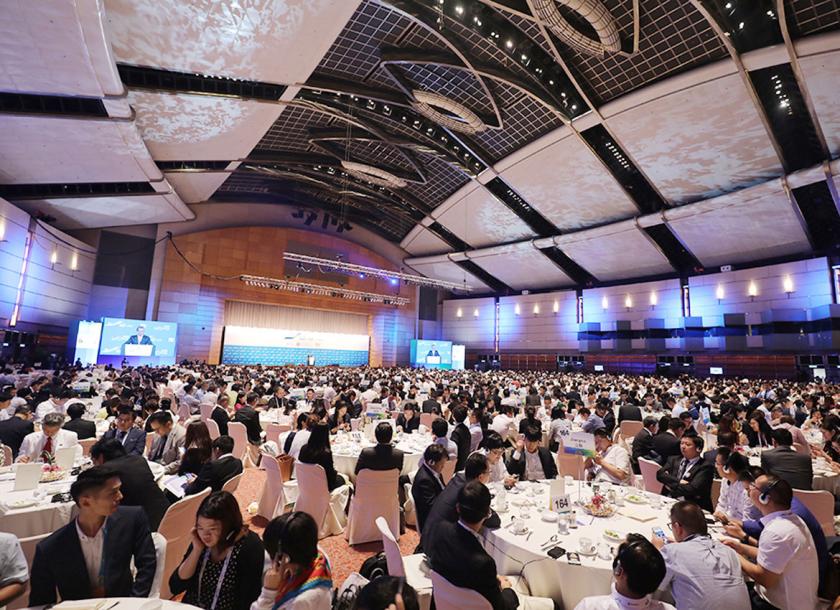
The newly appointed chair of MIC will showcase the major economic reforms and investment projects in the third annual Belt and Road Summit in Hong Kong
The newly-appointed chair of Myanmar Investment Commission (MIC) U Thaung Tun, who is also Union Minister at the Office of the Union Government, is going to lead a delegation to the third annual Belt and Road Summit in Hong Kong this week. Demonstrated by the major economic reforms we have implemented over the past year, the Myanmar government actively and enthusiastically encourages responsible investment in the country. The high-level delegation to Hong Kong, comprising senior policymakers as well as key actors in the private sector, is the latest example of our commitment in this regard. Organised by the Hong Kong Trade Development Council, the Summit will be held from June 27 to June 29. This year’s Myanmar delegation includes members of the MIC, principal officials from relevant ministries, a regional minister from the Yangon government, representatives of the Union of Myanmar Federation of Chambers of Commerce and Industry (UMFCCI) as well as private businesses and investors based in Myanmar. One of the objectives of the Belt and Road Summit is to explore new economic opportunities under the Belt and Road Initiative. In the forum, the delegation of officials and business leaders from Myanmar will seek to tap into those opportunities and tell the wider world that Myanmar is open for business. -
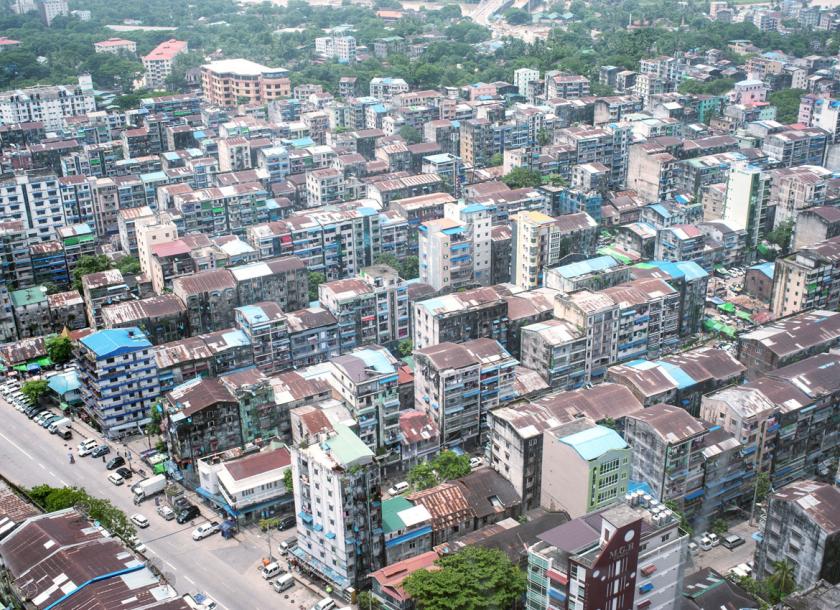
Yangon Region is expected to consume 3,000 MW of electricity by 2021-22 (Daw Su Hlaing Wint, Assistant Manager of the Yangon Electricity Supply Corporation – YESC)
Yangon Region is expected to require 3,000MW of electricity by 2021-22, Daw Su Hlaing Wint, assistant manager of the Yangon Electricity Supply Corporation (YESC) said at the Electricity and Energy Expo in Yangon on June 22. That’s the amount of electricity currently being generated across Myanmar, of which Yangon now consumes just over half at 1,548MW. In other words, Yangon will require the equivalent amount of power now being consumed by the whole country by 2021-22, representing an increase of up to 15pc per year over the next four years, Daw Su Hlaing Wint said. To meet that demand, some K1 billion worth of infrastructure, including substations and transmission lines, will be needed for each additional MW of electricity generated. Yangon Region is expected to require 3,000MW of electricity by 2021-22, Daw Su Hlaing Wint, assistant manager of the Yangon Electricity Supply Corporation (YESC) said at the Electricity and Energy Expo in Yangon on June 22. -
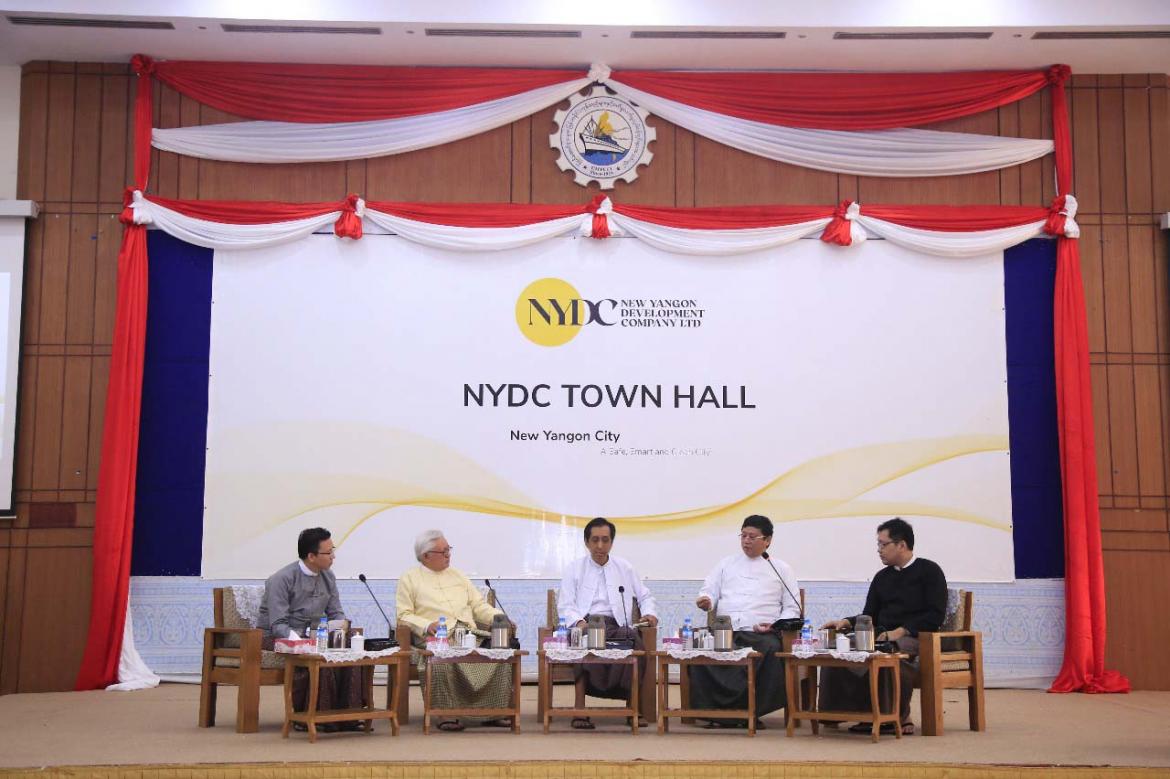
New Yangon City Development’s CEO, Mr. Serge Pun quizzed over the transparency and the government’s role in the multi-dollar project which aims to attract private sector investment
YANGON – New Yangon Development Company chief executive officer Mr Serge Pun has defended the government’s role in the multi-billion-dollar project, saying its only ambition is to attract private sector investment. “The whole [New Yangon City] project will be implemented with 100 percent investment from the private sector,” Pun said at a “town hall meeting” in Yangon on Saturday that was held to respond to questions surrounding the new city project. NYDC, which was launched in March, aims to attract US$5 billion in investment to turn an undeveloped part of Yangon Region west of the city into a thriving commercial and residential hub twice the size of Singapore. NYDC is the development vehicle for the project. While it is 100 percent owned by the Yangon Region government, its board contains three independent directors – Pun, former Singaporean foreign minister Mr George Yeo and former senior United Nations official U Tun Myat – and two government representatives. -
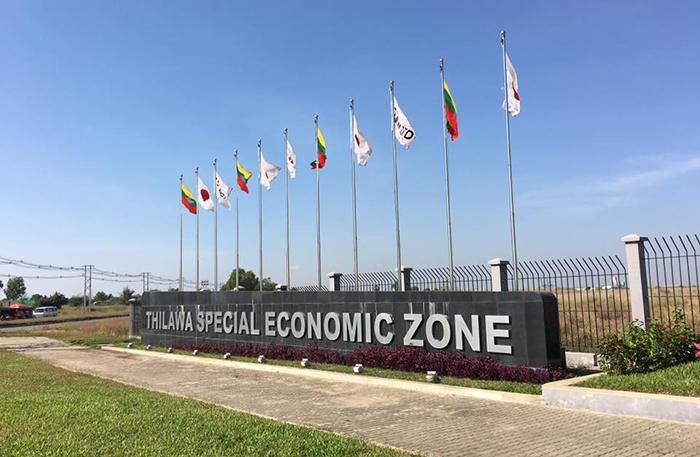
Toyo Ink SC Holdings Co., Ltd, the parent company of the Toyo Ink Group plans to establish a production base in the Thilawa Special Economic Zone in Yangon
Toyo Ink SC Holdings Co., Ltd., the parent company of the Toyo Ink Group of Japan, today announced plans to make a full-fledged foray into the Myanmar market with the establishment of a production base in the Thilawa Special Economic Zone in Yangon. The company plans to set up in a wholly owned manufacturing subsidiary July 2018 called Toyo Ink Myanmar Co., Ltd. They will begin with an initial paid-in capital of $6.5 million USD. The new factory is scheduled to break ground in November 2018 with commercial operation expected to begin in November 2019. In line with its strategic focus on strengthening its market competitiveness and boosting business development in the region, the Toyo Ink Group had been eyeing expansion in Myanmar while supplying the nation with exports via neighboring countries. In recent years, the government's aggressive policies to attract foreign funding, such as infrastructure enhancements and the relaxation of import restrictions, have substantially strengthened Myanmar's investment climate, making it an attractive investment destination. -
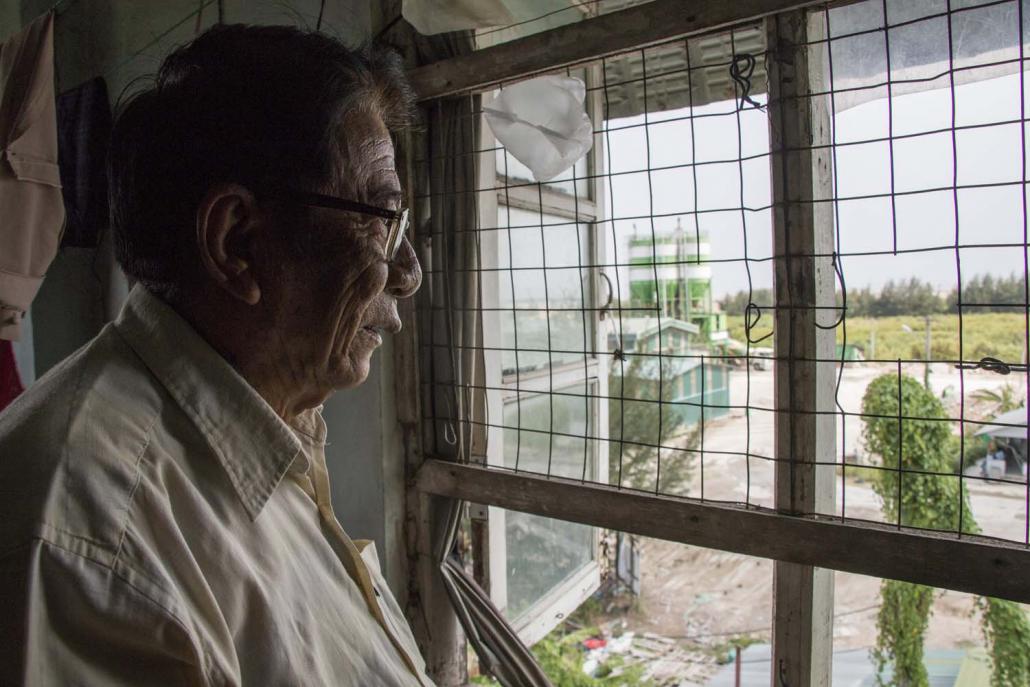
There is concern that Yangon residents will suffer from foul odours and air pollution if factories are built in residential areas
WHEN ITALIAN agronomist Mr Paolo Cerati, 45, first moved to Myanmar he admired Yangon’s clean, green environment. That was 13 years ago. Cerati, the founder of a successful fresh fruit and vegetable business, Fresco Myanmar, says the Yangon environment has deteriorated because of pollution. He feels it in his lungs. Cerati welcomes the times when he can escape the city for the fresh, clean air of his chemical-free farm at Heho, near the Shan State capital, Taunggyi. His health is better in the hills and he doesn’t need to use his asthma spray. Cerati believes his asthma was exacerbated by sickening fumes emitted from a raw rubber processing business run as a home industry next to his house in Yangon’s Mayangone Township. As well as posing a health hazard, Cerati said the home industry, which processes rubber sheets, was also a fire risk. “If there was a fire in that house, a toxic cloud would spread over the area for days and force the evacuation of residents,” he said. -
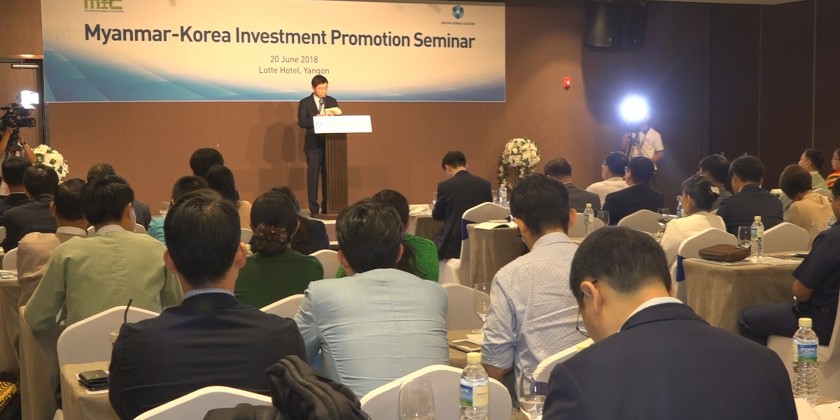
ASEAN Korea Centre visited Myanmar to seek business opportunities and a win-win partnership between the two countries
Myanmar and Korea join forces to scale up their business ties in investment and trading. The 12 Korean companies especially from manufacturing sector, led by the Secretary General of the ASEAN-Korea Centre visit Myanmar for two days not only to seek business opportunity but also to improve win-win partnership between the two countries. According to the MIC, Korea stands sixth on the list of foreign investor countries with over 3.8 Billion US$ investment, especially in oil and gas and manufacturing industry. The Korean business delegation visited the Thilawa SEZ on Tuesday, and learned about the industry. The Secretary-General shared their impression, challenges but stressed Myanmar is the potential destination that they look for. -

Singapore based Puma Energy Company is keen to invest in the construction of Myanmar's deep sea ports
YANGON- Singapore-based Puma Energy Company is keen to invest in construction of Myanmar deep sea ports, according to the press conference held in Union Business Centre on June 21st. “Myanmar deep seaport project is very big project. Puma Energy will see every possible opportunities in the country but we can't say anything exact now” said Wai Hlyan Min, Commercial Manager from Puma Energy Company. Among jetties that dot the coastal region, the Union government is now considering construction of an international standard jetty in Kyaukphyu. Myanmar is also in discussion with Japan and Thailand for upgrading the Dawei Jetty in Taninthayi Region to international standards. -
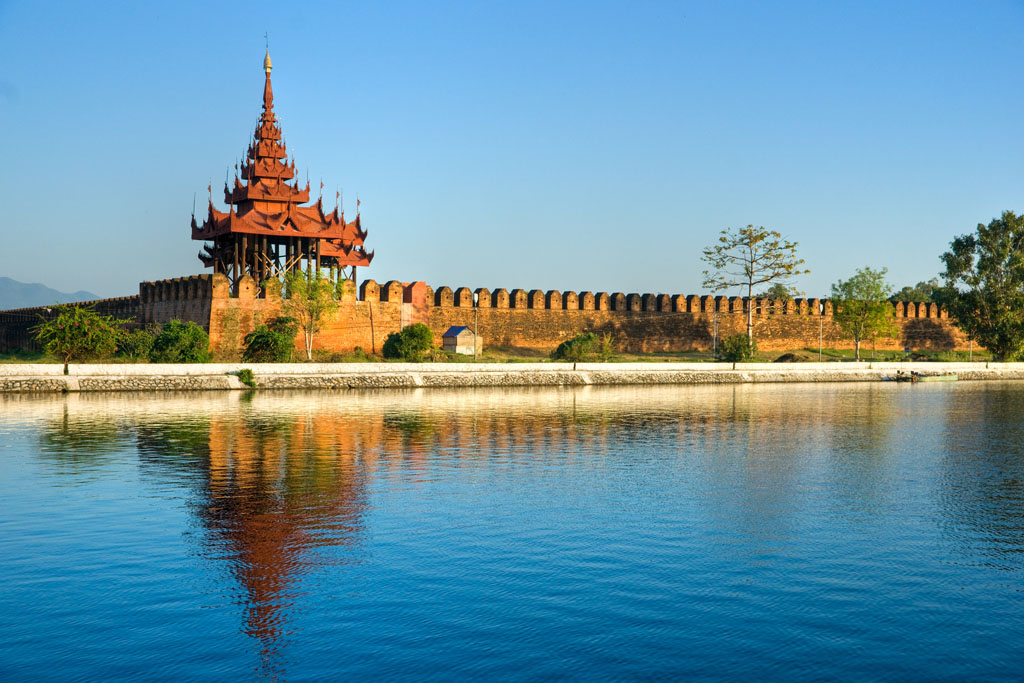
National Infrastructure Holdings-led consortium will construct a 143MW gas power plant in Kyaukse Township, Mandalay region, which is scheduled to be ready by next February
The National Infrastructure Holding-led consortium (NIHC), comprising of three firms, will construct a 145MW gas power plant in Kyaukse township, Mandalay Region, according to consortium. The tender was launched by the Ministry of Electricity and Energy (MOEE) in March 2018 and NIHC consortium was awarded the tender last month, Director Daw Yi Yi Htwe from MCM Co, a member of that consortium, told The Myanmar Times. Within the consortium, NIHC, a Yangon-headquartered infrastructure conglomerate, owns the largest number of the shares, followed Myanmar Chemical & Machinery and then a Chinese firm, one MCM official said. The 145MW gas power plant will involve US$100-120 million investment over a span of five years, the official added. -
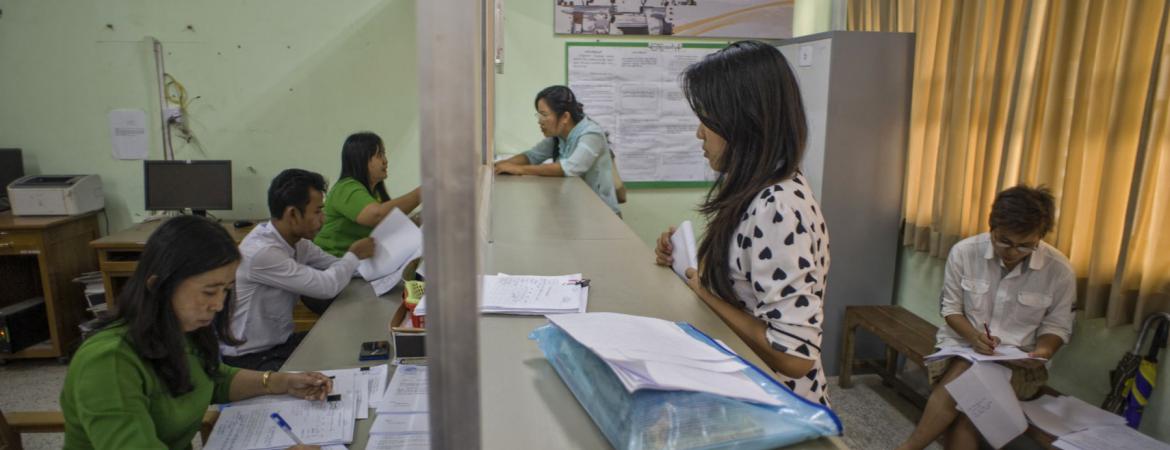
All companies need to do re-registration starting from 1 August 2018 when the new Myanmar Companies Law comes into force
The President’s Office issued Notice 48/2018 last Thursday to announce that the new Myanmar Companies Law will go into force on August 1. The new legislation, enacted in early December last year and spearheaded by the Directorate of Investment and Company Administration (DICA), is a landmark reform which allows domestic businesses to grow by seeking foreign capital and expertise via joint-ventures. It allows foreign entities to take up to a 35-percent stake in domestic companies and opens up the Yangon Stock Exchange for non-Myanmar customers. Mariano Suarez, partner of Thanlwin Legal, told The Myanmar Times that, for starters, there are two issues all companies must be aware of: the re-registration and change of company documents, as well as the many new requirements and notifications rolling in. “A company secretary is more necessary than ever. Beyond this, it’s all about foreign ownership and customised share rights!” Mr Suarez commented. -
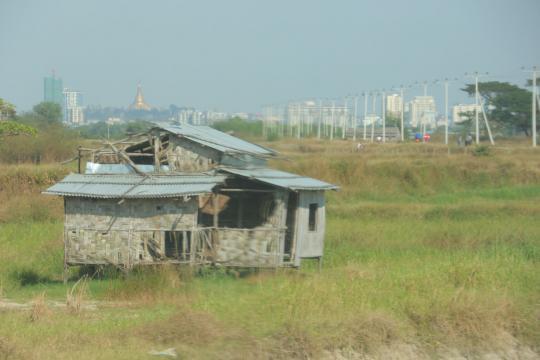
New Yangon Development Company (NYDC) plans to hold a talk to seek reliable facts on the much criticized Yangon new city project
New Yangon Development Company (NYDC) has planned to hold a talk about NYDC Town Hall with the intention of seeking strong evidences for Yangon New City Project as China Communication Construction Company Limited (CCCC), a tender winning company, is facing many questions as to whether or not there is transparency, said Thein Wai (a) Serge Pun, the CEO of the NYDC. “We hear the public opinions on the new town plan through social networks and media ever since the NYDC started setting up the NYDC. Most of the people are attracted to this project. Some people supported the project but some were against it. Criticisms went to Yangon regional government and the NYDC. “So many questions arose—does the government need to do business? Can’t a ministry or a committee carry out this new town project? Will Yangon new city project become money-wasting project without seeking profits? Why doesn’t the government do better for Yangon? Is there transparency in tender option process? Is there transparency in the authorized permission of the Chinese company to set out to implement the first phase of the new town plan, a challenge of the NYDC?” Thein Wai (a) Serge Pun, the CEO of the NYDC said.
เกาะติดข่าว
Copyright © 2014 Business Information Center All Rights Reserved.







